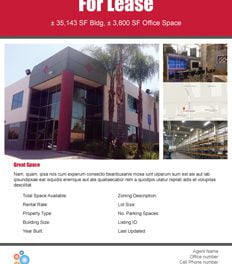Mortgage loan originators (MLOs): what is the fee structure for your compensation?
- Fee-based only (59%, 16 Votes)
- Salary plus fee-sharing (15%, 4 Votes)
- Salary, fee-sharing, and bonuses (15%, 4 Votes)
- Salary, fee-sharing, and benefits (11%, 3 Votes)
Total Voters: 27
One of the first signs of the coming slowdown: The Federal Reserve (the Fed) is countering the highest levels of inflation seen since the early 1980s. As such, the Fed has recently begun to raise its benchmark interest rate, causing a domino effect in the mortgage market.
The average 30-year fixed rate mortgage (FRM) rate has increased over two percentage points since the start of 2022, at 5.3% in mid-May 2022. Over the same period, the Fed has raised their benchmark rate a mere 0.75%, meaning the bond market has run up mortgage rates significantly to cover future losses anticipated from ongoing rate increases and future defaults.
Of immediate concern in the real estate market is less mortgage money available to homebuyers. Specifically, buyer purchasing power has decreased over 20% since the beginning of 2022 alone. Absent any sudden windfalls, homebuyers now have the choice of:
- settling for a less expensive home (while still paying an above market price);
- offering less money for the same standard of home (unlikely to be successful at this time, due to the high level of competition still in the market); or
- putting their homebuying plans on hold.
But looking ahead several months, there is another concern on the horizon: a double-dip recession.
Typically, a recession is imminent when the Fed begins to increase its benchmark interest rate. With the job losses of the 2020 recession yet to be fully recovered, firsttuesday expects this coming economic slowdown to constitute a double-dip recession.
Related article:
Can the Fed cool inflation without implementing another recession?
For historical reference, recall the shallow 1980 recession, which was followed up by a second, more severe recession in 1981-1982 when the Fed doubled down on its fight against high inflation. This was officially the last instance of a double-dip recession, though another is on the way.
firsttuesday forecasts the second act to the 2020 recession will arrive in late-2023. Home prices will begin to drop in late-2022 and continue to decline in 2023-2024, dragged down by today’s challenging interest rate increases and slowing sales. However, today’s ongoing inventory shortage will cushion some of the blow for sellers, preventing a crash the likes of 2006-2009 (though no one knows until we are there).
Still, as prices decline, recent homebuyers will soon find themselves underwater, weighed down by negative equity. Unable to complete a traditional sale, some of these homes will head toward foreclosure and become real estate owned (REO) properties.
The housing market won’t stabilize until after 2025, with buyer-occupants, speculators and long-term real estate investors returning in greater numbers beginning in 2026-2027.
Remember REOs?
The last time REOs were a significant presence in the housing market was in the years following the 2008 recession and foreclosure crisis. In 2009, REO sales made up a whopping half of all home sales. Further back, recall the Resolution Trust property disposal unit formed following the modest 1991 recession to sell seemingly endless quantities of property taken back by defunct savings and loans associations (S&Ls), providing a fiesta for investors with auction paddles they couldn’t keep from holding up.
During the REO years, any agent who wanted to make a living needed to work with REO properties, either on the buyer or seller (bank/servicer) side.
While the REO share will not rise to the significant levels of 2008-2012, REOs will make their presence known — and agents who want to continue to make a decent living in the leaner years ahead will take note.
To be truly successful in real estate, any agent or broker worth their salt knows the importance of being an insider. An insider agent is the first to know before a hot property hits the market, possesses a contact list a mile long and has their finger on the pulse of local trends. These agents are the ultimate gatekeepers to homeownership and real estate investment.
Some key industry players who remain outsiders include lenders, servicers and some mortgage loan originators (MLOs). These individuals are crucial to the real estate market, but tend to be involved at a basic, macro level. Knowing little about the day-to-day happenings of the real estate market, these outsiders may benefit from teaming up with an insider agent.
That’s where the REO specialists (perhaps you?) come in.
For example, ensure your future career by building relationships with those industry “outsiders” today.
These relationships will send servicers of REO property first to you to manage the sale of REOs, immensely helpful for ensuring a future income stream when traditional listings are few. They will also help you learn of REOs before they hit the market, enabling the homes with the best investment potential to reach your desk before they hit the streets.
Along those lines, another way to cash in on the coming REO wave is to prepare to invest.
Smart investors buy when the market is at a bottom — but during these down times, when cash is king, real estate investment can be a hard sell. A real estate syndicator works with the cautious investor, creating a limited liability company (LLC) of cash investors who may otherwise be unwilling to individually purchase property during a recession or early recovery period. Purchasing REO or foreclosed properties at a discount, they are then set up to earn and eventually profit from a long-term rental property investment.
Relationships are key to a career in real estate, in the good times — and the bad. As sales volume continues to decline in 2022 and 2023, use this slowdown to set your business up for success in the years to come, and you will be prepared no matter what poor winds the economy sends your way.
Related article:















Dear Carrie,
You are a fine writer. It is a breath of fresh air read an author that underway the subject matter and can write fluently. I agree with everything you stated in the articles I read today.
Dear Carrie,
You are a fine writer. It is a breath of fresh air to read an author that understands the subject matter and can write fluently. I agree with everything you said in the articles I read today.
Never mind my earlier comment. I just figured out what you were referring to. Thanks.
You say:
“While the REO share will not rise to the significant levels of 2008-2012, REOs will make their presence known — and agents who want to continue to make a decent living in the leaner years ahead will take note.”
I believe you intended a different span of years?
Hello,
Great article, my question is how does one get their foot in the door with REO’s ?
Hello Carrie,
I just finished reading the REO article; nicely written & an Excellent reminder
for me …a licensed agent in SF Bay area …that specializing in thiss arena of selling
can be very profitable.
But, I’m actually just writing to comment about YOU I’m intrigued about, how you became an editor
in this RE business, But have an incredibly impressive academic background MASTER”S in THEOLOGY!
I’m impressed. I attended USF and took the required theology classes (which I loved)
So that’s all thank you for posting and I look forward to continuing my interest in receiving these posts
enjoy your day, Nina Kelley